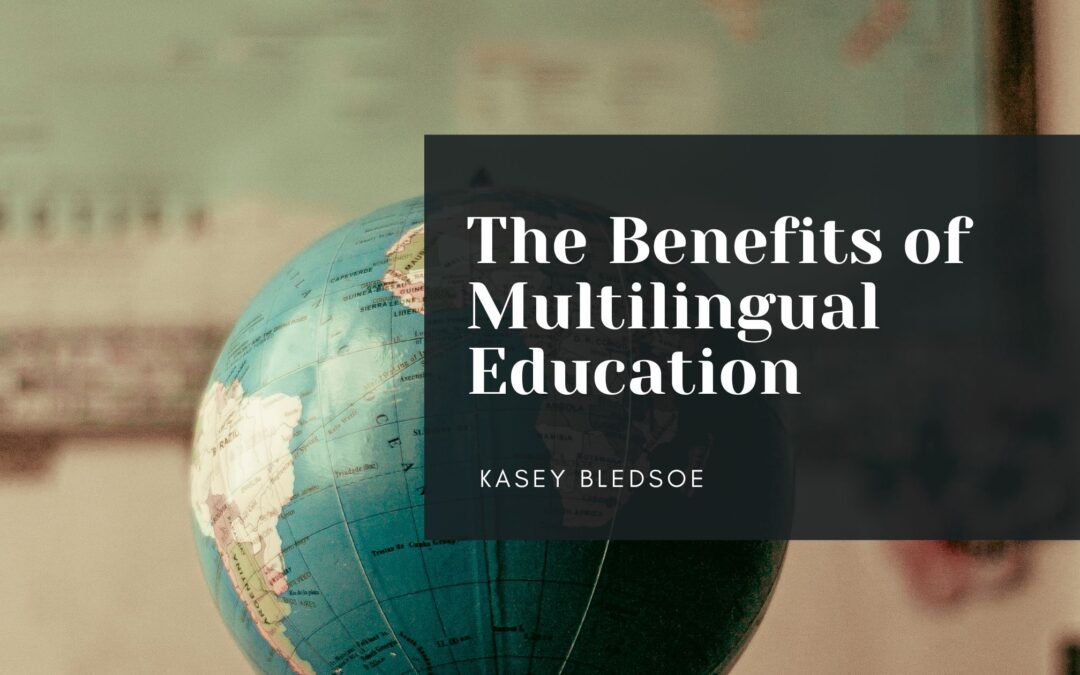In our increasingly interconnected world, the ability to communicate effectively across cultures and languages is becoming essential. Multilingual education, which emphasizes learning multiple languages alongside traditional subjects, offers numerous benefits that extend far beyond language acquisition. Multilingual education has many advantages, and it can empower students to thrive in an increasingly globalized society.
Cognitive Advantages
Research has consistently shown that multilingual education enhances cognitive abilities. Bilingual and multilingual students exhibit better problem-solving skills, improved memory retention, enhanced creativity, and greater mental flexibility. Learning multiple languages stimulates the brain and develops critical thinking skills, leading to improved academic performance across various subjects.
Cultural Awareness and Appreciation
Multilingual education goes beyond language acquisition; it fosters cultural awareness and appreciation. Students learn different languages and gain insight into diverse cultures, traditions, and perspectives. They develop empathy, open-mindedness, and a broader understanding of the world. This cultural competence is invaluable in a globalized society, promoting tolerance, respect, and effective communication across cultural boundaries.
Improved Communication Skills
Learning multiple languages sharpens communication skills in both the native and target languages. Multilingual students have better listening skills, greater linguistic accuracy, and enhanced vocabulary. They can effectively communicate with a broader range of people, making connections and building relationships across linguistic and cultural barriers. Strong communication skills are highly valued in today’s multicultural workplaces and can open doors to career opportunities worldwide.
Enhanced Problem-Solving and Adaptability
Multilingual education cultivates adaptability and problem-solving skills. Multilingual students develop a remarkable ability to navigate unfamiliar situations, think creatively, and adapt to new environments. Learning different languages requires switching between linguistic systems, understanding different cultural norms, and adapting communication styles accordingly. These skills transfer to other areas of life, empowering students to face challenges with resilience and resourcefulness.
Expanded Academic and Career Opportunities
Proficiency in multiple languages expands academic and career opportunities. Multilingual individuals have an edge in the job market, as they are sought after by multinational companies, international organizations, and industries that require cross-cultural communication. They have a broader range of career paths, including roles in translation and interpretation, diplomacy, tourism, teaching, and global business. Multilingualism also opens doors to higher education opportunities in countries with different languages.
Cognitive and Socioeconomic Benefits
Studies have indicated that multilingual education can have long-term cognitive and socioeconomic benefits. Bilingual and multilingual individuals are often more resilient to cognitive declines, such as the onset of dementia and Alzheimer’s disease. They also tend to have higher earning potential and increased job opportunities, as multilingualism is an asset in a globalized economy. Moreover, multilingual education promotes cultural diversity and inclusivity, fostering social cohesion and breaking linguistic and cultural barriers.
Multilingual education offers a multitude of benefits that extend far beyond language proficiency. It enhances cognitive abilities, promotes cultural awareness and appreciation, improves communication skills, fosters adaptability and problem-solving skills, expands academic and career opportunities, and provides long-term cognitive and socioeconomic advantages. By embracing multilingual education, students gain a competitive edge in an interconnected world, become global citizens, and contribute to building a more inclusive and understanding society. As the world becomes increasingly diverse and interconnected, the value of multilingual education cannot be overstated. It is an investment that empowers individuals to unlock a world of opportunities and thrive in an ever-changing global landscape.

